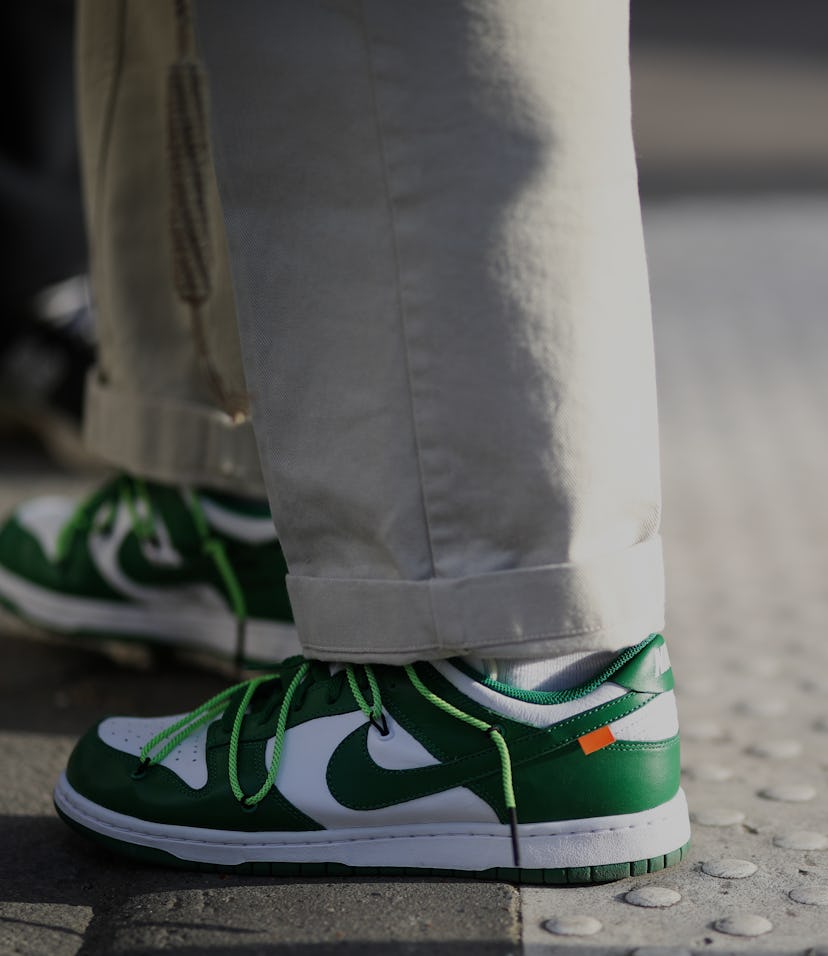Style
The sneaker resale market is in free-fall
Hype isn’t immune to the novel coronavirus' effect on the global economy.

StockX has positioned itself as the stock market of sneakers, adding an air of legitimacy to this still nascent business of reselling shoes. The platform makes it easy to monitor the going rates of coveted sneakers and sell accordingly. It’s a prototypical example of supply and demand, although demand in this case is largely driven by the fickle factor known as “hype.” But as we’re seeing right now, world affairs can also have a deleterious effect on the market — just like the stock exchange.
Resale prices for many hot sneakers are beginning to drop as the coronavirus rears its effect on the economy. Even before mass social distancing went into effect in the U.S., the stock market saw its worst fall since the 2008 financial crisis. Now, as many members of the service and retail industries are out of work for the foreseeable future, and other sectors have been impacted by the pandemic, it’s only natural for purchasing hyped kicks to become less of a priority.
A sign of the times — Several high profile releases from the year have seen their value drop on StockX — which, despite its many flaws, remains the best platform for monitoring the market. The Off-White Air Jordan V, arguably the biggest release of 2020 so far, has seen its resale value nearly cut in half over the past month. After it’s February 15 release, retailing for $225, sales climbed to as high as $986 on February 26 for a size 9 — one of the most common sizes and therefore routinely fetching some of the highest prices; size 9 sales will be used from here on out. The price has consistently fallen ever since, reaching a low of $657 yesterday.
A more rapid effect can be seen on the Aimé Leon Dore New Balance 827, which released Friday March 13 for $150. Over the weekend, sales for the white/multi version hit a high of $373 before quickly dropping and hitting a low of $200 on Wednesday. In the days since, prices have fluctuated between $200 and $240. The effects of coronavirus on the workforce hit so quickly that those who bought the shoe just a week ago didn’t realize they’d be selling to such a weakened consumer base.
Sam Hart, a 30-year-old in New Jersey who resells sneakers on StockX for additional income has noticed the shift. He typically sells four to five sneakers a month and plans to ride out the fall without panic selling — “Perks of this not being my main source of income,” he says.
Only the beginning — It isn’t just newer releases that are seeing prices drop either. Several of the most sought after sneakers from 2019 have also been affected, including the Off-White Nike SB Dunk Lows. Prices for the pine green variant, which has been the most popular, have dropped from $1,010 on January 15 to just $498 yesterday. Likewise, the Travis Scott Air Jordan 6, which was released in October, has seen a drop from $710 on January 16 to $535 on Wednesday.
“People just don’t have money to spend right now, [and] people are cashing out,” Hart says. “I could see this being awful for full-time resellers and the consignment stores. Reselling is like any business: when the economy is bumping, people are buying.”
For those who can still afford it, now is a great time to pick up sneakers on the resale market. Such a clear trend downward has never been seen before, if only because the tools for monitoring it weren’t around just five years ago. Prices may continue to fall, which will be particularly enticing for consumers intending to purchase for wear.
For those still treating it like the stock market, it could also be the time to acquire assets for cheap and wait out for an eventual uptick. When that’ll happen, however, is unclear. We may end up needing to socially distance ourselves for more than year.